Training Hub
-

Welcome to your learning hub!
🧠Introducing our dynamic and innovative Training Hub - a state-of-the-art space designed to inspire and empower educators to take their skills to the next level!
🤝Our platform offers a comprehensive range of courses and learning resources, covering four exciting themes: community engagement, cutting-edge learning design, global perspectives in higher education, and the ever-important education-enterprise cooperation.
🤓Whether you are a seasoned educator or just starting out, the Training Hub provides the resources and support you need to advance your teaching skills and take your career to new heights.
Join the Hub today and unlock your full potential!
Note: Please be informed that, due to security reasons, the auto-registration is not possible. In order to have access to the Hub, please contact your course supervisor or the platform administrator (gabriel.dima@upb.ro) in order to receive the login info. Thanks you for your understanding!
Course categories
Skip site announcements
Site announcements
Skip available courses
Available courses
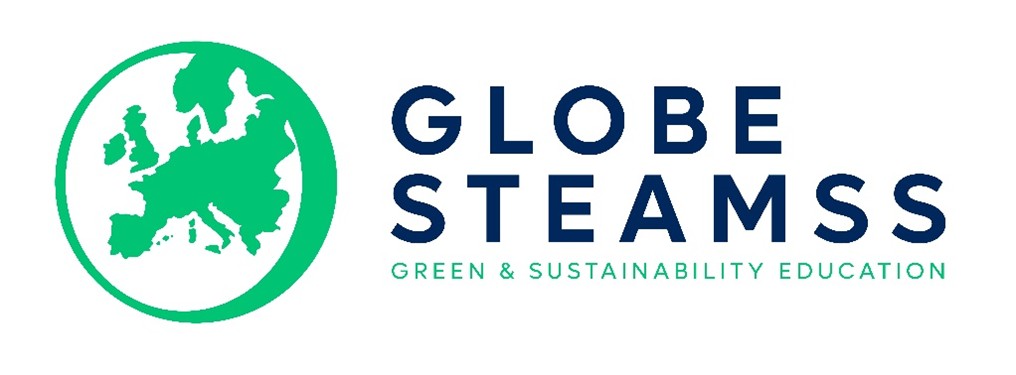
Please insert a description here
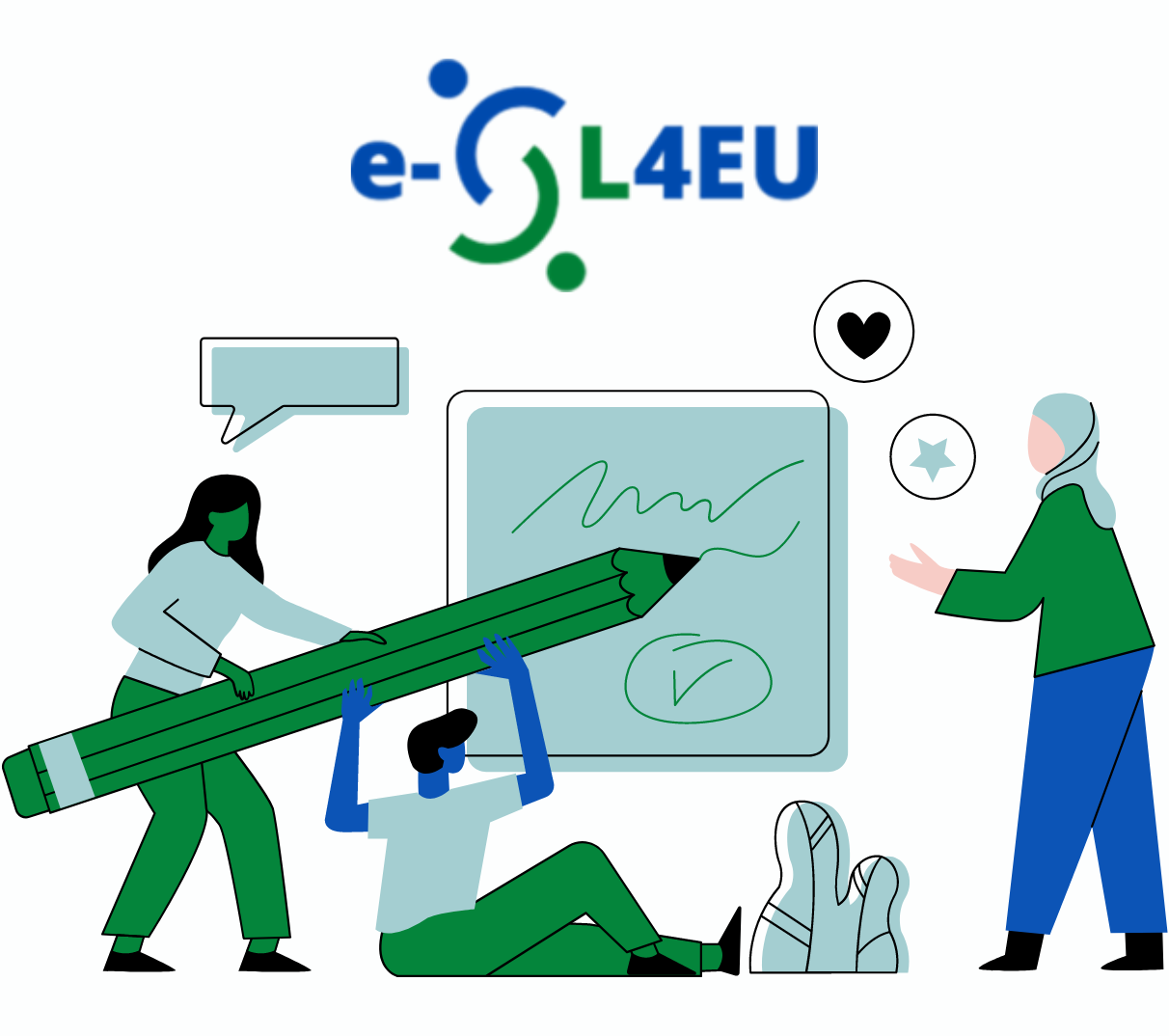
Acest conținut educațional a fost dezvoltat de consorțiul e-SL4EU (https://e-sl4eu.us.edu.pl/)
 Creative Commons Attribution-NonCommercial-ShareAlike 4.0 International (CC BY-NC-SA 4.0).
Creative Commons Attribution-NonCommercial-ShareAlike 4.0 International (CC BY-NC-SA 4.0).
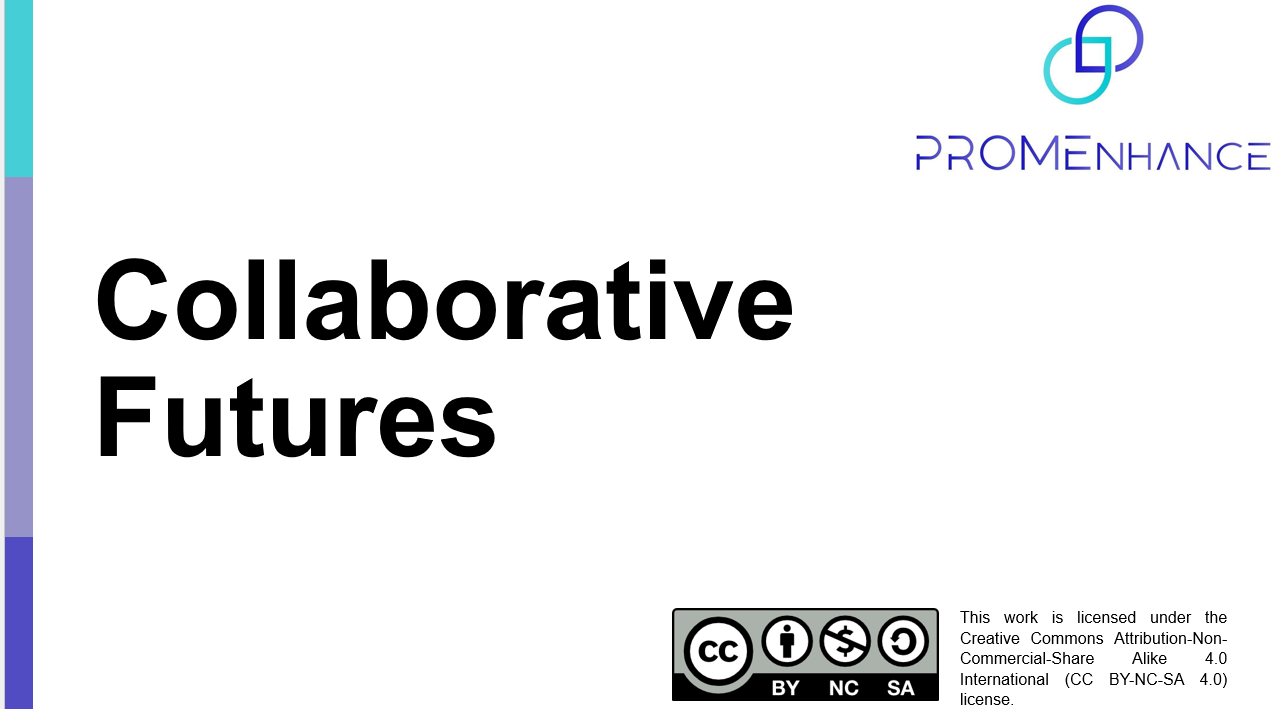
Collaborative Futures: Mastering Participatory Community Development is a comprehensive online course designed to equip learners with in-depth knowledge and practical skills in participatory community development. Spanning ten modules, this course delves into various aspects of local development, community assessment, strategic planning, and community engagement. Each module, structured to be completed in a week, includes lecture videos, interactive activities, quizzes, and writing assignments, culminating in a capstone project. Through this course, participants will gain a nuanced understanding of local governance, socio-economic and environmental factors in development, and effective strategies for advocacy, collaboration, and capacity building. This program is ideal for individuals looking to enhance their expertise in local development and community engagement, whether they are early-career practitioners, students, or enthusiasts in the field.

The material is developed by the e-SL4EU consortium (https://e-sl4eu.us.edu.pl/) of 6 partners from 5 EU countries.
 It is licensed under the Creative Commons Attribution-NonCommercial-ShareAlike 4.0 International (CC BY-NC-SA 4.0) license.
It is licensed under the Creative Commons Attribution-NonCommercial-ShareAlike 4.0 International (CC BY-NC-SA 4.0) license.
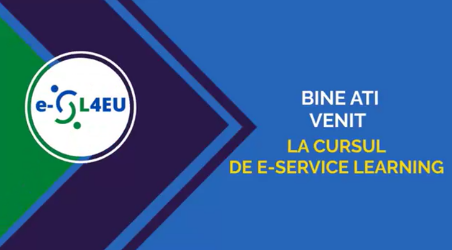
Participants in this course (academic teachers) will learn key characteristics of e-Service-Learning (e-SL) and will be provided with training tools for the adoption of e-SL to build inclusive higher education systems as well as examples of good practices from diverse study fields and curriculum design options. Academic teachers will also learn how to design their own e-SL course.
The e-course is developed by the e-SL4EU consortium (https://e-sl4eu.us.edu.pl/) of 6 partners from 5 EU countries.
 It is licensed under the Creative Commons Attribution-NonCommercial-ShareAlike 4.0 International (CC BY-NC-SA 4.0) license.
It is licensed under the Creative Commons Attribution-NonCommercial-ShareAlike 4.0 International (CC BY-NC-SA 4.0) license.

Participanții la acest curs vor descoperi caracteristicile esențiale ale e-Service Learning (e-SL) și se vor familiariza cu instrumente de formare pentru adoptarea e-SL în vederea construirii unor sisteme de învățământ superior incluzive. Cursanții vor analiza și exemple de bune practici din diverse domenii de studiu și opțiuni de proiectare a activităților de învățare bazate pe e-SL. Profesorii vor învăța, de asemenea, cum să își conceapă propriul curs e-SL.
Cursul este dezvoltat de consorțiul e-SL4EU (https://e-sl4eu.us.edu.pl/), format din 6 parteneri din 5 țări ale Uniunii Europene.
 Cursul este dezvoltat în baza licenței CC BY-NC-SA 4.0. Această licență permite utilizatorilor să distribuie, să adapteze și să construiască pe baza materialului în orice mediu sau format, doar în scopuri noncomerciale și cu precizarea autorului.
Cursul este dezvoltat în baza licenței CC BY-NC-SA 4.0. Această licență permite utilizatorilor să distribuie, să adapteze și să construiască pe baza materialului în orice mediu sau format, doar în scopuri noncomerciale și cu precizarea autorului.

Digital technology has become an indispensable aspect of contemporary living. As our world becomes more interconnected, it is crucial that individuals harness the benefits of digital technology while being mindful of the potential negative outcomes that may arise from misuse, overuse, or abuse. Adopting a digital mindfulness approach fosters a culture of introspection and reflection.
In this module, we aim to illustrate the importance of cultivating a healthy relationship with technology to optimize learning outcomes and promote overall well-being. Participants will also discover techniques and tools that can help students develop and sustain healthy technology habits. We will explore methods that can increase learners' awareness of their online usage and provide practical strategies to mitigate potential negative consequences.
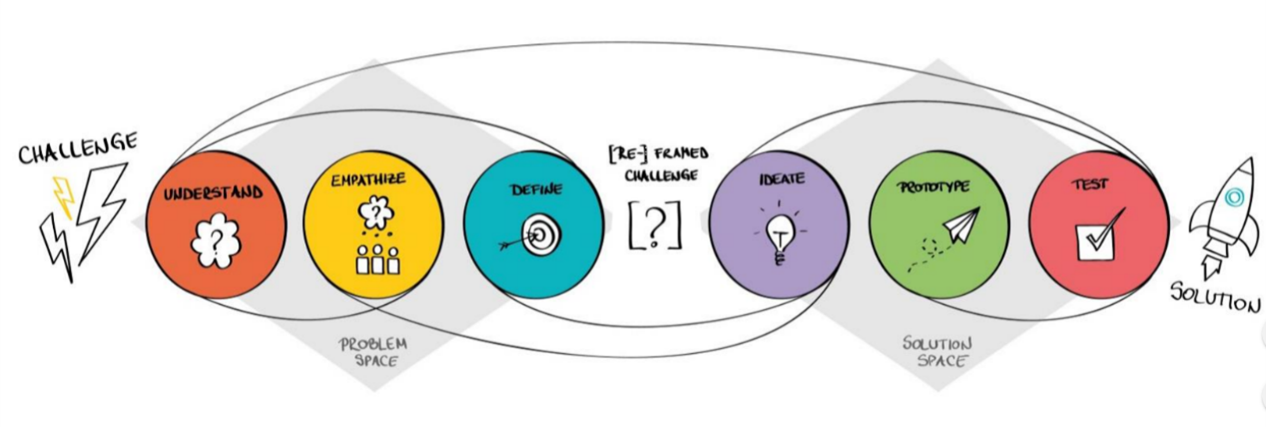
In today's world, innovation is no longer limited to a select few. It has become a necessity for everyone, be it a corporate manager, an aspiring entrepreneur, a government official, or even a teacher. The expectation is to accomplish more with fewer resources, which is where design thinking comes in. Design thinking equips individuals at every level and in every type of organization with the tools they need to think innovatively and discover new possibilities that may have been previously overlooked.
This course provides an introduction to design thinking and utilizes a model developed by IDEO, along with various tools that facilitate an understanding of design thinking as a problem-solving approach. Additionally, we present a specific project that aims to enhance the innovative capabilities of undergraduate students through design thinking and design-based learning.

As society rapidly changes, universities must prepare students for the 5.0 Society by providing engaging and relevant education that fosters innovation and entrepreneurial mindsets. This module will explore how educators can help students develop an entrepreneurial mindset to acquire evolving skills needed for their careers and society.
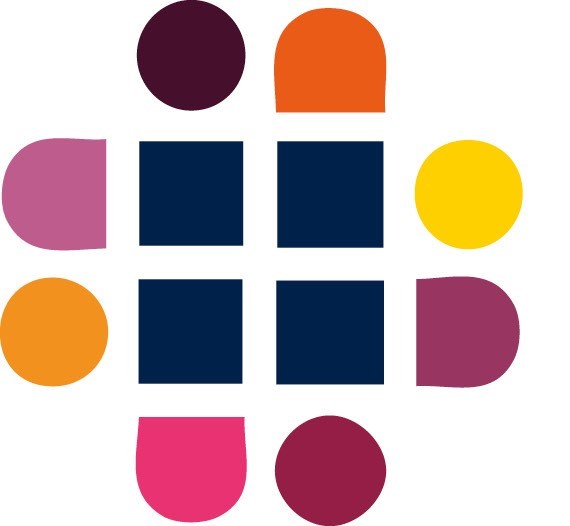
🟡Discover strategies to integrate global perspectives into your teaching. Learn how to foster international collaborations, encourage cross-cultural exchanges, and equip your students with the skills they need to thrive in a globalised world.

This course, specifically designed for teachers and trainers in Vocational Education and Training (VET), aims to enhance your understanding and management of intercultural diversity within educational environments. You'll gain critical skills to recognize and address your cultural biases, adapt communication styles for effective engagement with diverse individuals, and prepare your students for working in intercultural contexts. Comprising two modules, this course offers insights into European Citizenship and familiarizes you with the European VET, HVET systems, and EU programs and tools. Whether you choose to explore one module or engage with the entire learning path, this course is structured to provide a robust foundation for navigating and teaching in a multicultural setting.

🌐Internationalisation in education is more than a strategic objective; it is a transformative process that shapes institutions, students, and communities. By fostering cross-cultural exchange, collaborative learning, and global partnerships, internationalisation enriches the academic experience, extends institutional reach, and equips students for success in an interconnected world. Measuring these impacts involves looking beyond statistics to focus on tangible outcomes that highlight the true value of global engagement.
📢This course examines the multifaceted impact of internationalisation, exploring key performance indicators alongside deeper qualitative outcomes such as expanded academic influence, enhanced educational quality, and the cultivation of global citizenship. Through this perspective, participants will discover how internationalisation drives institutional innovation, enriches learning environments, and contributes to societal change, providing them with the tools to assess and maximise its benefits effectively.

💡This course, titled "Support Effective Internationalization Policies in Vocational Education and Training (VET)," offers an in-depth exploration of the internationalization of VET.
💬The course begins by setting the scene in Module 1, where participants assess the relevance of VET within global market trends and local economic strategies.
🗨️ It then transitions to Module 2, which details the European Union's substantial influence on VET through policies, funding, and quality assurance frameworks, highlighting instruments such as Erasmus+ and the European Skills Agenda.
💬The final segment, Module 3, employs a SWOT analysis to critically evaluate and enhance VET internationalization strategies at the regional level. By the end of the course, participants will gain a thorough understanding of VET's role in the European educational landscape, master the EU's policy environment, and be equipped to craft and implement robust internationalization strategies that align with local needs and European directives. This course is tailored for VET providers, policymakers, and educational administrators looking to deepen their strategic approach to developing educational policies with an international perspective.

Companies and universities alike are on a quest to identify and develop their high-potential employees. In this module, you will learn best practices for selecting, recruiting, and onboarding talent. You will also learn how to measure performance and evaluate employees, as well as develop and coach your talent to achieve their full potential at work. This module provides insights, frameworks, and tools to manage and develop talent effectively, creating a robust talent pipeline for organizations.

The Seasonal School is a five-day program that offers an introduction to economic, social, political, and legal aspects of modern China through Sant’Anna Institute's leading research activities. The school aims to promote knowledge of China's role in the new global order and its impact on international relations. The program features a strong interdisciplinary approach and will cover aspects related to Chinese innovation, geopolitical and international relation issues, and legal systems. The school will analyze the evolution, prospects, and challenges of China's role in the international order, from the perspectives of European and Italian scholars outside of China.
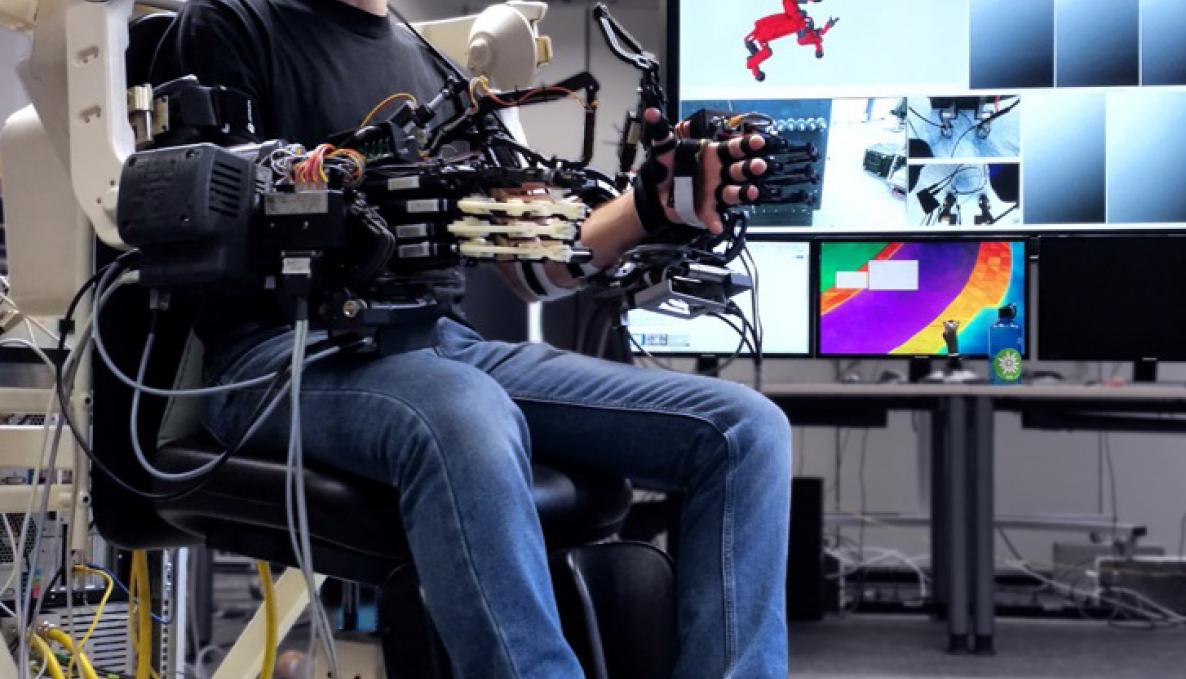
In the forthcoming decade, technologies of eXtended Reality (XR), i.e., Virtual, Augmented and Mixed Reality, and collaborative robots will become ubiquitous. Then, the XR combination with robots and human-centric Artificial Intelligence will enable distributed environments where humans, robots and virtual entities coexist and may become the sentient embodiment of remote human operators. The AIRONE School will cover specific research topics underpinning this paradigm shift affecting technology, perception and interaction ways.
At the end of the AIRONE School, participants will learn the main aspects of eXtended Reality, the basics for the design and control of collaborative and wearable robots for immersive telepresence, and the fundamentals of Machine Learning and AI applied to Robotics and artificial vision systems.
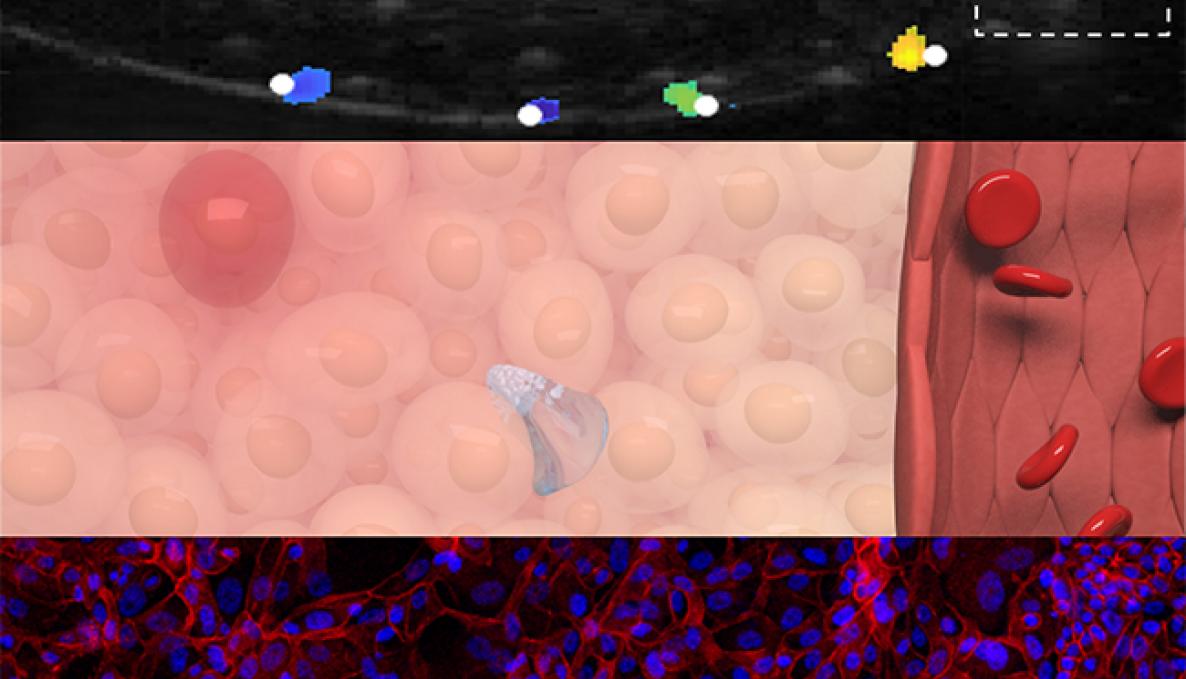
The Seasonal School will introduce participants to the highly interdisciplinary field of minimally invasive (robotic) interventions. Students will be introduced to intervention robotics, artificial intelligence for medical imaging, smart materials and innovative robotic components, microrobotics and nanomedicine, as well as clinical aspects of minimally invasive interventions. Students will have a chance to discuss the numerous scientific, technological and clinical challenges in the field, and to gain skills in developing innovative technological solutions with a highly multi-disciplinary and holistic approach.
It addresses postgraduate and PhD students, with backgrounds in engineering, physics, mathematics, medicine and life sciences, and computer sciences, who are interested in challenging themselves with such a relevant and interdisciplinary field of research.


